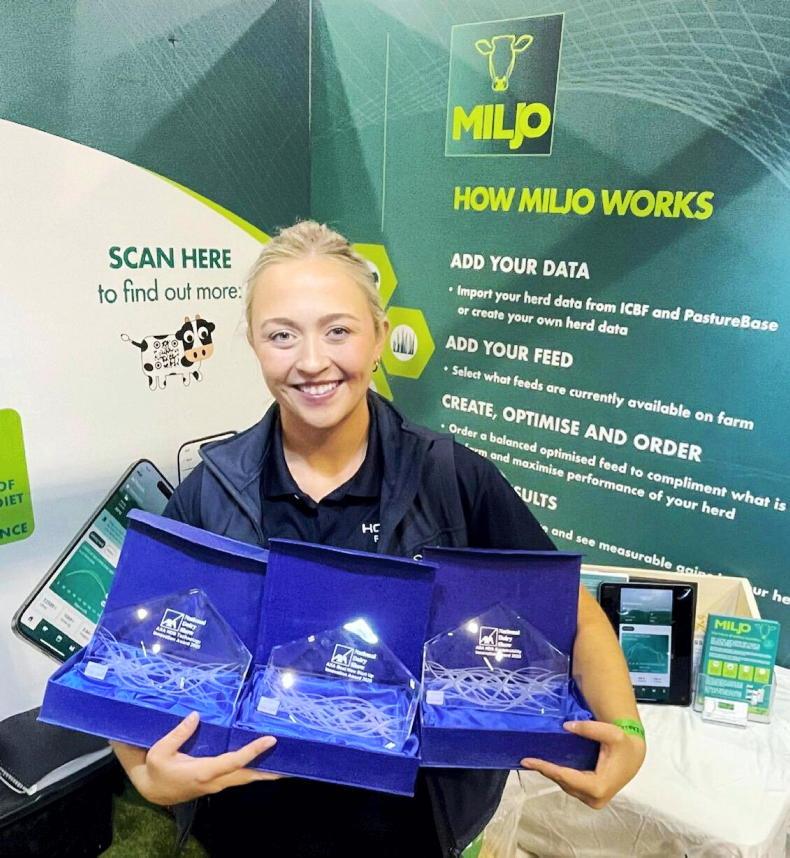We know that the cost-of-living crisis has added to a rise in food prices. Applying some simple cost-saving techniques and tips, however, can help with student living. Going to college is the first time a lot of students have to tackle managing a shopping or food budget and it’s definitely a learning curve – we’ve all been there! It doesn’t mean you have to live on cheap packet noodles; although I know they definitely helped me get through college when I was short on funds. Let’s take a look at some ways to save money and make your budget go further.
Smart shopping
When it comes to saving money on food, it really comes down to menu planning, making lists and shopping around. It sounds like a lot of work, but by creating these habits you’ll not only save yourself money, but reduce food waste and make fewer trips to the shops.
Menu planning sounds like something a chef does, but all I mean here is to plan your eating for the week. Are you going to have any meals at college or at a friend’s house? If so, you can factor these into your planning and that means less food shopping as you won’t be eating at home every day. Have a think about what meals you want to cook, and make a list of what you need. Are you buying ingredients for the first recipe that you can use for others throughout the week, such as garlic, onion, herbs, spices, pasta or rice?
Think about the supermarkets and shops in your area. While it is good to find a shop you love, sometimes one shop is good for vegetables, while another will have better deals on toiletries.
Certainly, it is worth going to your local independent grocery stores like the butchers as they often have deals on various meats or different cuts. International shops and markets have amazing value on buying rice and spices, especially in larger quantities.
Every supermarket has a reduced section or aisle and this is where you can find brilliant deals on food that needs to be used immediately. I save so much money shopping this way and you can freeze it if you’re not going to use it straight away.
Don’t forget about the reward cards that supermarkets offer as there is always discounted food and offers, but also you get moneyback vouchers for spending.
In fact, it’s worth looking at what discounts you can get with your student card. They often have deals for various brands or for eating out in restaurants such as Boojum, McDonald’s, Milano, Domino’s, and the Press Up Group of restaurants.
Books for cooks
They say the average person knows how to cook five recipes. If you’re cooking from memory or guessing measurements, however, you are more likely to use more food than is necessary – have you ever cooked too little pasta? – and in that case, food can be wasted and money lost.
My advice is to stick to recipes if you’re unsure, but also to use cookbooks and recipes for inspiration so you have more than five recipes in your repertoire and you’ll be the most popular person in your house!
There are lots of cookbooks, TikTok and Instagram accounts for student living and I highly recommend finding the ones that have the food you like and saving them.
Using appliances
It’s amazing how many people don’t know how to store food properly and this means not using our fridge and freezer properly. We also tend to put food into them and then completely forget about it.
Menu planning will help with your stock control, but making sure your fridge freezer is at the correct temperature is important. The ideal fridge temperature is between 3°C and 5°C and your freezer temperature should be at -18°C.
Inside the fridge, the best way to store food is to ensure you put meat at the bottom of the fridge and your dairy and other products at the top. This avoids cross contamination and temperature-wise is best, also. Don’t keep milk in your fridge door! That’s the warmest part of the fridge.
Invest in some good food bags and if you open a packet of ham or cheese, place it in the sealable bag, squeezing out the air, to maximise the freshness.
Use clear containers for leftovers or cooked food, so you can see it’s still in there.
Also, take vegetables out of packaging as it tends to sweat inside, and add paper towels in the vegetable drawer to keep them fresh for longer.
Sharing advantages
If you’re in shared student accommodation, it’s a good idea to start a kitty for some groceries that you all use – for example, butter, milk, tea and toilet rolls. It also means you can buy certain items in bulk, which usually means cost savings too.
If you all like the same food, you could even share the “big shop” and take turns cooking a meal throughout the week.
This is such a fun thing to do and it means you don’t have to cook all week.
Five hero ingredients with multiple uses
Tinned tomatoes: great for pasta sauces, soups, breakfastdishes.Tinned beans: not baked beans but mixed beans, kidney beans, butter beans or black beans, all of which can be used for soups, pastas, curries, salads, breakfasts. Lentils: great for curries, soups, and salads.Eggs: can be used for any meal or in baking.Paprika: one of the most versatile spices. Read more
Financial supports to keep you afloat during your third-level education
Health: starting college on the right foot
We know that the cost-of-living crisis has added to a rise in food prices. Applying some simple cost-saving techniques and tips, however, can help with student living. Going to college is the first time a lot of students have to tackle managing a shopping or food budget and it’s definitely a learning curve – we’ve all been there! It doesn’t mean you have to live on cheap packet noodles; although I know they definitely helped me get through college when I was short on funds. Let’s take a look at some ways to save money and make your budget go further.
Smart shopping
When it comes to saving money on food, it really comes down to menu planning, making lists and shopping around. It sounds like a lot of work, but by creating these habits you’ll not only save yourself money, but reduce food waste and make fewer trips to the shops.
Menu planning sounds like something a chef does, but all I mean here is to plan your eating for the week. Are you going to have any meals at college or at a friend’s house? If so, you can factor these into your planning and that means less food shopping as you won’t be eating at home every day. Have a think about what meals you want to cook, and make a list of what you need. Are you buying ingredients for the first recipe that you can use for others throughout the week, such as garlic, onion, herbs, spices, pasta or rice?
Think about the supermarkets and shops in your area. While it is good to find a shop you love, sometimes one shop is good for vegetables, while another will have better deals on toiletries.
Certainly, it is worth going to your local independent grocery stores like the butchers as they often have deals on various meats or different cuts. International shops and markets have amazing value on buying rice and spices, especially in larger quantities.
Every supermarket has a reduced section or aisle and this is where you can find brilliant deals on food that needs to be used immediately. I save so much money shopping this way and you can freeze it if you’re not going to use it straight away.
Don’t forget about the reward cards that supermarkets offer as there is always discounted food and offers, but also you get moneyback vouchers for spending.
In fact, it’s worth looking at what discounts you can get with your student card. They often have deals for various brands or for eating out in restaurants such as Boojum, McDonald’s, Milano, Domino’s, and the Press Up Group of restaurants.
Books for cooks
They say the average person knows how to cook five recipes. If you’re cooking from memory or guessing measurements, however, you are more likely to use more food than is necessary – have you ever cooked too little pasta? – and in that case, food can be wasted and money lost.
My advice is to stick to recipes if you’re unsure, but also to use cookbooks and recipes for inspiration so you have more than five recipes in your repertoire and you’ll be the most popular person in your house!
There are lots of cookbooks, TikTok and Instagram accounts for student living and I highly recommend finding the ones that have the food you like and saving them.
Using appliances
It’s amazing how many people don’t know how to store food properly and this means not using our fridge and freezer properly. We also tend to put food into them and then completely forget about it.
Menu planning will help with your stock control, but making sure your fridge freezer is at the correct temperature is important. The ideal fridge temperature is between 3°C and 5°C and your freezer temperature should be at -18°C.
Inside the fridge, the best way to store food is to ensure you put meat at the bottom of the fridge and your dairy and other products at the top. This avoids cross contamination and temperature-wise is best, also. Don’t keep milk in your fridge door! That’s the warmest part of the fridge.
Invest in some good food bags and if you open a packet of ham or cheese, place it in the sealable bag, squeezing out the air, to maximise the freshness.
Use clear containers for leftovers or cooked food, so you can see it’s still in there.
Also, take vegetables out of packaging as it tends to sweat inside, and add paper towels in the vegetable drawer to keep them fresh for longer.
Sharing advantages
If you’re in shared student accommodation, it’s a good idea to start a kitty for some groceries that you all use – for example, butter, milk, tea and toilet rolls. It also means you can buy certain items in bulk, which usually means cost savings too.
If you all like the same food, you could even share the “big shop” and take turns cooking a meal throughout the week.
This is such a fun thing to do and it means you don’t have to cook all week.
Five hero ingredients with multiple uses
Tinned tomatoes: great for pasta sauces, soups, breakfastdishes.Tinned beans: not baked beans but mixed beans, kidney beans, butter beans or black beans, all of which can be used for soups, pastas, curries, salads, breakfasts. Lentils: great for curries, soups, and salads.Eggs: can be used for any meal or in baking.Paprika: one of the most versatile spices. Read more
Financial supports to keep you afloat during your third-level education
Health: starting college on the right foot









SHARING OPTIONS